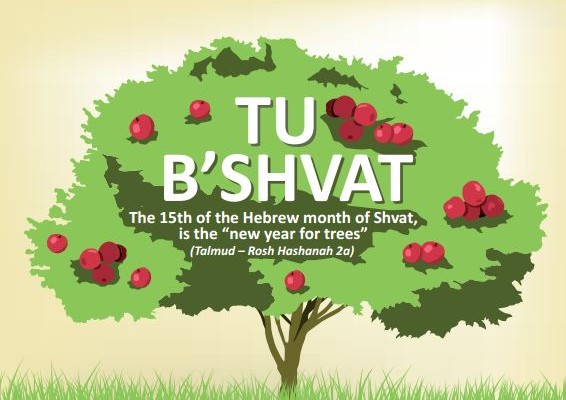Tu B’Shevat is a festival that dates back to a time when tradition called for thanking the creator for what nature has provided in plenty. Tu B’Shevat, the New Year for Trees, is a holiday of great important in Israel. It is actually a festival of trees celebrated by Israeli Jews where they devote their time during the day taking care of what nature has offered and appreciate the natural resources of the country.
According to Biblical laws, it is related to the different tithes that can be segregated from the produce grown in Israel. My quest to know more about it showed me that the 15th of the month of Shevat, which falls on January 20, 2011, decides the year for which tithe is to be given. Around this time, trees would start blooming and we see the beginning of a new crop. The tithes may vary according to the date prescribed in terms of tithe quantity falling onto the next year.
In Israel, a seven year agricultural cycle is observed which ends with the Sabbatical year. This day was set aside in the Misnah, the core of Jewish religious texts, as the day to offer fruit tithes. During ancient times, farmers used to separate one tenth of the produce and eat it in Jerusalem. This happened on first, second, fourth, and fifth year of the cycle, and the tithe was called Maaser Sheni or the Second Tithe. It had to be given in addition to 10 percent given to the Levite and 2 percent given to the Kohain. The third and sixth years were different where tithe was offered to the poor.
The day of Tu B’Shevat in Israel is marked by people eating those fruits. These fruits are identified by the Torah as appropriate to celebrate the harvest of the land. Figs, grapes, olives, pomegranates and dates are very commonly eaten during Tu B’Shevat. The festival is also symbolic of the fact that man is considered a tree of the field, which is mentioned in Deuteronomy 20:19. It signifies the importance of having strong roots in the religion and being like a fruit-bearing tree.
It takes around four months for the trees to produce fruit after the rains come in. So when they are tasted for the first time in the season, I would recite the Shehecheyanu blessing celebrating the joyous occasion, praise and thank God for taking care of us and allowing us all to reach thus far. This has to be said before “Ha’etz” blessing. Since the Sabbatical year does not call for any tithe, it is of utmost importance to know when the New Year starts for the crop.
People in Israel celebrate Tu B’Shevat as a time to thank God for the abundance of food and goodness of life. During this time, people are allowed to work and prayers related to the trees are recited. The festival occurs at the start of the holiday period. Traditional orthodox communities are known to blow the trumpet at the strike of dawn. The Rosh Hashanah marks the new calendar year for the Jews. Tu B’Shevat calls upon the people to reshape their relationship with nature and learn how to preserve it.



